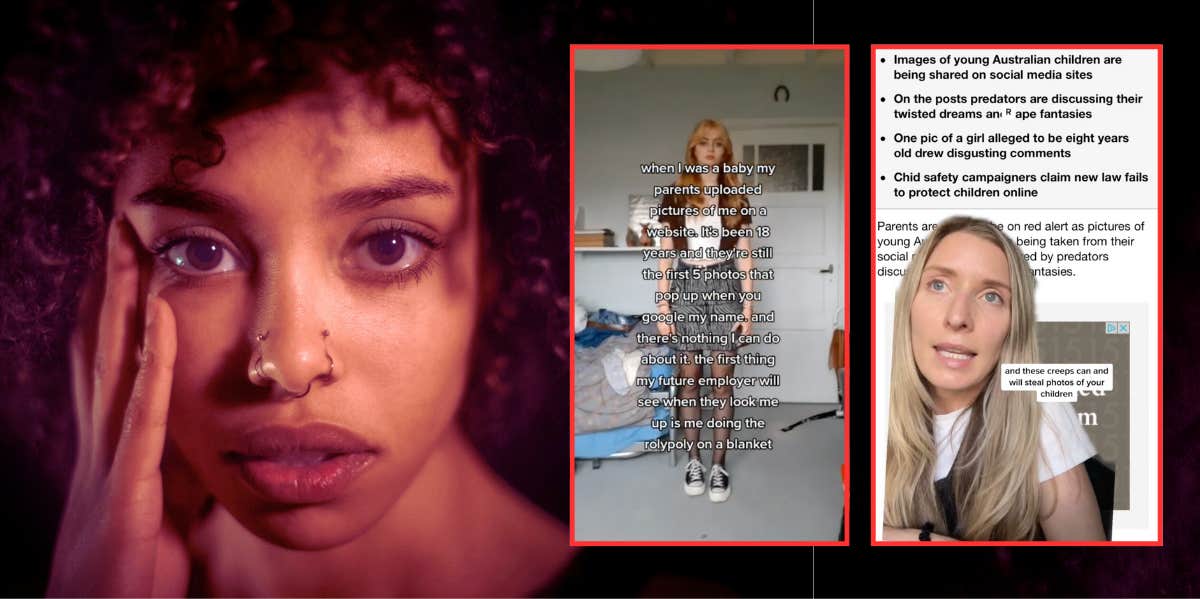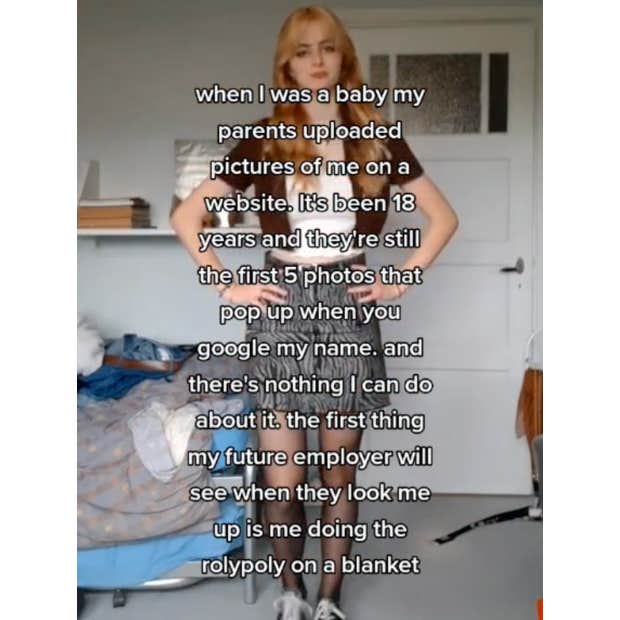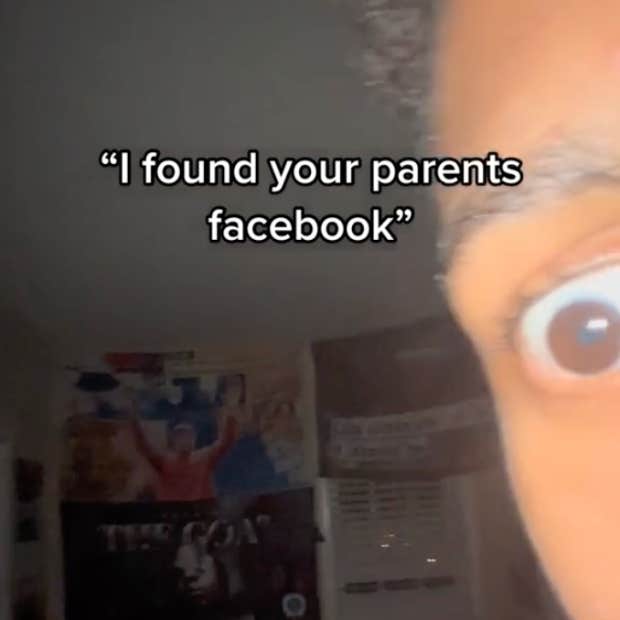The First Kids Posted On Social Media Are Now Adults & They're Not Happy With Their Parents
It turns out consent does matter when posting your kids online. And a lot of young people are pretty upset theirs was taken from them.
 Lipstick - Official / Shutterstock, annemari333, mom.uncharted / TikTok
Lipstick - Official / Shutterstock, annemari333, mom.uncharted / TikTok At this point, social media is so intricately woven into our lives that it can be hard to remember that it's still a relatively new phenomenon. Nowadays, the kids who were also brand-new at the time social media rose to prominence are teens and young adults, and they have some thoughts on having been internet mainstays their whole lives.
Some of the earliest kids posted on social media as babies are now very unhappy with their parents' choices.
A recent article in The Atlantic confirms what many of us have long suspected—isn't it a bit strange to document your child's entire life online? After all, how many of us would want photos and videos of us as we're taking a bath as a baby or having a meltdown as a toddler on the internet forever, following us around every time our names are Googled?
Few of us, most likely. And though we tend to assume the youngest generations are so steeped in social media they simply don't know any better, Lindsay's piece reveals they absolutely do—and they're extremely unhappy with how it is impacting their lives as they drift toward adulthood.

Photo: TikTok
Kids posted on social media have grown up to be embarrassed by the digital records of their childhoods, none of which they consented to.
A TikToker named Annemarie, known as @annemari333 on the app, posted about precisely this situation recently. "When I was a baby my parents uploaded pictures of me on a website," she wrote over a video of her 18-year-old self. That record of her babyhood has become inescapable. "It's been 18 years and they're still the first five photos that pop up when you Google my name, and there's nothing I can do about it."
Annemarie added, "the first thing my future employer will see when they look me up is me doing the rolypoly on a blanket."
The problem is so ubiquitous for young people born into the social media era that the fear of their parents' old posts with their childhood pictures and videos coming back to haunt them—again, without their consent—has become an in-joke among them on their own social media feeds.

Photo: TikTok
For some, the experience has been more than just an annoyance. It's been outright traumatizing.
Caymi Barrett, a 24-year-old mother featured in The Atlantic's story, is now a mom herself, and has made children's right to privacy her personal crusade. Testifying before the Washington State House earlier this year about the state's proposed children's privacy bill, she broke down into tears while introducing herself.
"Today is the first time that I've introduced myself with my legal name in three years," she told legislators through tears, "because I'm terrified to share my name because the digital footprint I had no control over exists. When you Google my name... childhood photos of me in bikinis will pop up."
Barrett went on to describe how these photos, videos, and other posts her mother made—including a blog post about her first period—resulted in bullying at a child and have haunted her well into her adulthood. They have also compromised her safety, and she is absolutely not alone in that experience.
Having kids posted on social media can also put them in danger.
Parents posting their children on social media has had all kinds of repercussions, including the rise of a phenomenon called "digital kidnapping." The practice involves stealing social media content parents have posted online and using it to create fake social media personas.
One mom whose children were digitally kidnapped discovered the fake accounts created with her kids' photos had amassed thousands of followers. There are many reasons why someone might want to do this of course—the world of "mommy influencers" and child stars on social media and sites like YouTube is an enormous business where piles of money can be made.
But there is also an obvious, and far more terrifying reason for "digital kidnapping"—pedophilia. Barrett spoke of this in her testimony to the Washington legislature, in fact—when she was 12, she was followed home by a man who recognized her from her mother's social media posts, and she feels certain it was her childhood bikini photos that tipped him off.
Websites have proliferated in recent years on which pedophiles and predators share photos and videos of children pilfered from parents' social media feeds—the dark underbelly of so-called "sharenting." One 2019 study by the UK's foremost children's charity, the National Society for the Prevention of Cruelty to Children, found that the number of pedophilia and grooming crimes on Instagram in the UK doubled every 12 months.
And as TikTok has grown, it too has become a hotbed for predatory activity. The most famous example is child influencer Wren Eleanor, who became the center of a crusade by moms on TikTok after users noticed videos of Wren racking up huge numbers of bookmarks or saves, indicating that pedophiles may be saving videos of the little girl. More recent "mommy influencer" content like videos by TikToker Avery Woods has raised similar suspicions.
Of course, it's understandable why we'd want to share images of the kids in our lives on social media—aside from being cute, they're often hilarious. Still, they can't give their consent to having their faces and bodies splashed on the internet in perpetuity, and given the impact it seems to be having on the social media babies now coming of age? It might be time to rethink things.
John Sundholm is a news and entertainment writer who covers pop culture, social justice and human interest topics.
